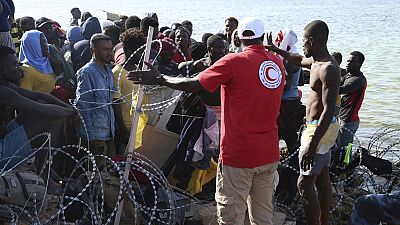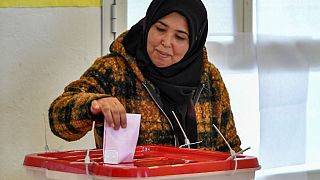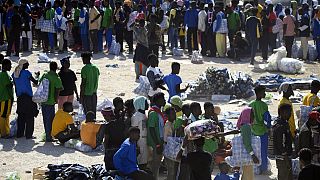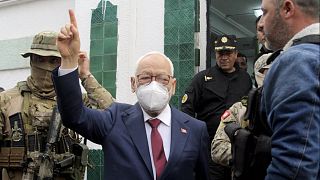Tunisia
"Arbitrary arrests", "forced displacements" and "illegal expulsions" towards the borders with Libya and Algeria, migrants, refugees and asylum seekers in Tunisia suffer " daily institutional violence", denounced the World Organization Against Torture (OMCT), based in Geneva, in a report published on Monday.
The 58-page study, which cites direct testimonies and from partner NGOs, points the finger "responsibility" Tunisian authorities in"violations committed on the territory, including border areas".
She notes that the country is under "continued pressure from Europe to reduce irregular migration in the Mediterranean".
According to OMCT, "human rights violations" had already been known "a gradual intensification" after a speech in February by President Kais Saied denouncing the arrival in Tunisia of "hordes of illegal migrants".
But according to the NGO, "a profound change at the institutional level" took place this summer, characterized "illegal and forced evictions" of people from their homes, "forced displacement and in place of places of deprivation of liberty", as well as "deportations and expulsions" to since September."regular" and "plus structured", which became Algeria and Libya
In July, after the death of a Tunisian during a brawl with nationals from sub-Saharan Africa in Sfax (center-east), hundreds of They were arrested in this metropolis, the epicenter of illegal departures to Europe.
"In a few days, more than a thousand people were displaced to desert areas on the borders with Libya and Algeria", underlines the report, entitled "The roads of torture" which criticizes a violation of international treaties signed by Tunisia.
"Since June, at least 5,500 migrants have been expelled to Libya and more than 3,000 to Algeria", around a hundred of whom have died on the Tunisian-Libyan border, according to international humanitarian sources at AFP. These "expulsions" were denounced by the UN, but denied by the Tunisian authorities.
In addition, according to OMCT, "the inhumane living conditions to which migrants, refugees and asylum seekers are subjected" , concentrated by the thousands in recent months in the countryside near Sfax "may constitute torture and ill-treatment".< /span>
The NGO is more generally concerned about "the inability of the Tunisian authorities to protect" these people, pointing out"undignified living conditions, without access to basic services, employment and sources of income".














Go to video
UN Migration Chief warns against ignoring root causes of migration
Go to video
Greece cracks down on irregular migration, says it’s "not an open corridor to Europe"
Go to video
Nearly 200 migrants intercepted off the coast of Senegal
01:25
Greece blocks asylum claims after surge in migrant arrivals
02:15
Small boat crossings by migrants in northern France on the rise
01:27
More than 1,200 migrants arrive in Crete amid influx from Libya